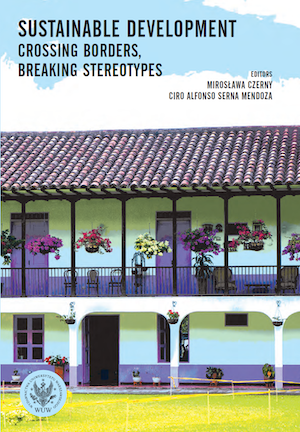(Dis)ordered bodies: gender and territorial planning in La Celia, Risaralda, Colombia
(Dis)ordered bodies: gender and territorial planning in La Celia, Risaralda, Colombia
Author(s): Juan Camilo Betancur Jaramillo
Subject(s): Geography, Regional studies
Published by: Wydawnictwa Uniwersytetu Warszawskiego
Keywords: women’s association; gender equity; public policies; sustainability; development
Summary/Abstract: To question the relationships between body, gender and territory is essential to comprehend the territorialization processes. These have been studied from diverse points of view, counting the Feminist Geography among them, which has underlined the relevance of gender as a category that allows to explain the territory in function of problems, necessities, inequality’s origins and ways in which places are inhabited. Many international policies have raised questions about this topic, such as the 2030 Agenda for Sustainable Development in its 5th Development Objective and other national policies and plans. Nevertheless, the territorial ordering policies in Colombia have not questioned a heteronormative and patriarchal model of dwelling in the world, which is evidenced in the existence of Territorial Ordering and Development Plans that do not include gender analysis and thus ignore or even aggravate gender associated problems by replicating exclusionary and victimising viewpoints. Therefore, this document questions how women have been represented in territorial ordering policies in La Celia between 1999 and 2019, as well as their practical reflection in a local coffee grower women’s association. The data allow to explain how, amidst the male perspective of the municipal policies and the usage of the term gender to designate a vulnerable other, the women from Celianese Coffee Grower Women’s Association [AMCECAFE] try to subvert femininity stereotypes and boost their entrepreneurship in coffee growing. Furthermore, they make evident how for them femininity is a field in tension that defies the models of vulnerable woman, productive woman and reproductive woman that the policies represent.
Book: Sustainable development
- Page Range: 262-269
- Page Count: 8
- Publication Year: 2021
- Language: English
- Content File-PDF

